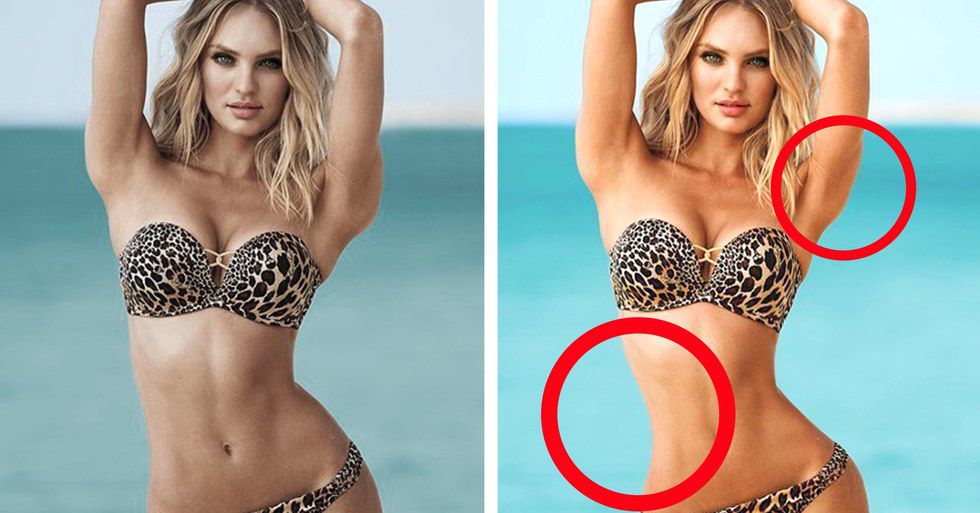It's spring break, and it's time for relaxing at the beach and enjoying time away from school, work, etc. It's also time to break out that bikini if you want to soak up some sun, but you may not feel too comfortable about that due to many reasons. Body image is the way we personally feel about our bodies, and social media plays a huge role on how we see ourselves, which then affects our body image and self-esteem. A person can't go a day without going on their phone, laptop, or whatever they use and see an airbrushed photo and instantly compare themselves to that photo.
The average person is exposed to at least 5,000 advertisements a day, and most of these ads the person sees is aimed to make that person want to buy that product they see. However, advertisements will go to extreme lengths to make sure they attract customers to their brand.
For example, the models we see in magazines like Cosmopolitan and Glamour are most of the time photoshopped to disguise flaws on the models. You can even find photoshop done on the models on fashion websites as well. Like with Victoria's Secret for instance, who have been known for having multiple photoshop fails.
It's not just advertisements, though—we can find dissatisfaction with our bodies from television, movies, music videos, social media outlets and more. With Instagram and Snapchat, people are exposed to what society considers "perfection," and that includes a slim body, six-pack abs, a poreless face and hair that never fails to impress.
In fact, a study conducted proved that when women simply go on Facebook for 20 minutes compared to googling cats, they will experience more dissatisfaction with their bodies.
Know the Facts
According to the West Virginia Department of Education, the average American woman is 5'4" tall and weighs 140 pounds compared to the average American model who is 5'11" and weighs 117. We see these models in magazines, television and social media outlets which results in the reason why 80 percent of American women are dissatisfied with their appearance.
It's not just women who suffer from poor body image—men suffer as well. According to a recent study made by David Frederick, which surveyed 116,356 men, about 20 to 40 percent of men stated they were not satisfied with their image. The parts of their image they were not satisfied with were their physical appearance, weight and muscle size.
An article written on AdMedia stated, "Only 5 percent of women in the U.S. actually fit the current body type popularly portrayed in advertising today."
Keep It Real Campaign informed us that 80 percents of 10-year-old girls being studied have been on a diet at least once in their lifetimes so far. They also found out that 53 percent of 13-year-old girls have issues with their bodies, and that number increases to 78 percent when girls turn 17.
Ideal Bite informs us that 100 percents of the things and models we see in fashion magazines is retouched.
Just a simple look at your Instagram turns into wishing you has that model's thighs or friend's flat stomach, and then you instantly start to regret what you ate that day for lunch. And it shouldn't have to be like that, because we as a society need to encourage women and men to be proud of their bodies and not ashamed.
All in all, it shouldn't matter what society or the media tries to show you what they think is right. The only thing that matters is what you think of your body, because you're not another statistic. You are you, and that is wonderful.























